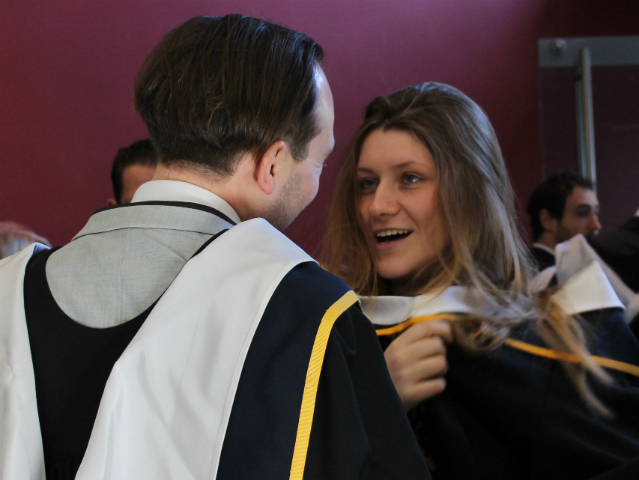
[dropcap]An[/dropcap] equal amount of men and women enroll for postgraduate research in Ireland, according to the Higher Education Authority.
The HEA recently published a Factsheet on Postgraduate Research in Ireland, which looks at the many trends in postgraduate research in the country over the last five years.
Speaking about the facts and figures found by the research, DCU’s Postgraduate Officer Allan Stevenson described the equal gender balance in enrolment as “interesting” in regards to the gender pay gap between men and women.
“What I do find interesting is that gender enrolment is 50/50 and that the salary bands appear to be near to 50/50”, he said. “Although, it would be interesting to see, for example, in the €25’000 – €45’000 bracket how many men are closer to the €45’000 mark compared to how many females are.”
Stevenson questioned whether or not the statistics regarding salary presented by the findings were an accurate depiction of real life.
“It’s all well and good saying saying that 58.6 per cent of pHD female graduates earn €25’000 – €45’000 but is this a true reflection? Are these women perhaps getting €25’000 – €30’000 while the men are [earning] between €35’000 – €45’000?
“Unfortunately we do not know the answers to these questions, but the survey makes it look like there is equal pay amongst the sexes.”
Other findings presented by the research shows that the number of people pursuing postgraduate research programmes have remained relatively consistent since 2013 at between 9’506 and 9’802 students, and that two thirds of PhD graduates find employment in Ireland.
Regarding the universities with the most popular postgraduate research programmes, UCD has the highest number of researchers at 1’742, followed by Trinity College at 1’591. UCC places third at 1’321, with NUI Galway ranking fourth at 1’246.
DCU has 767, making it the second lowest ranking Irish university next to NUI Maynooth with 437.
However, Stevenson believes that this ranking bears no reflection on DCU’s popularity as a whole.
“The figures are about enrolments and, as you know, each university offers different courses so to compare them is difficult,” he said.
Michelle Townsend



